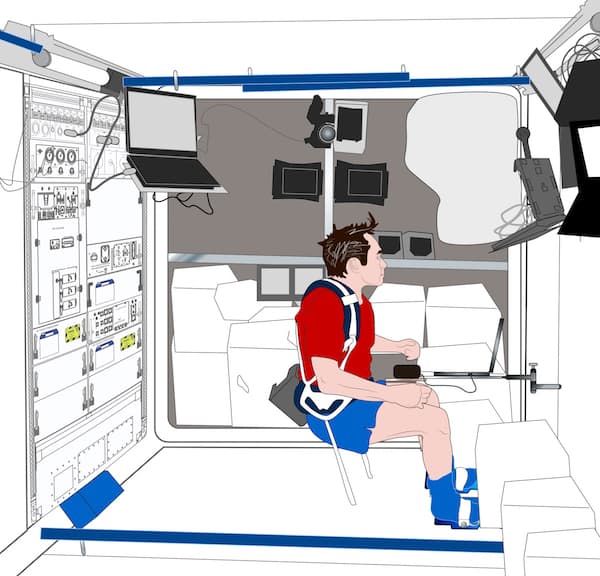NASA Study - How Brain Changes In Space Flight And How To Deal With Those Changes?
Space flight is much more complex experience for the astronauts than what they show us in movies, be it 'The Martian', 'Interstellar' or 'Gravity'. No matter how much the directors try to keep the story aligned with real science, there obviously are limitations and the pressure of not boring audiences with too much jargon. Well, cut to NASA and the ISS aka International Space Station where the real magic happens, a team of researchers is studying the effects of space flight on an astronaut's brain. It turns out that, space travel can mess up the human brain so much that it can no longer tell - which way is up and which one's down.

Humans have a tough time coping with the changes in brain especially when completing mental tasks in microgravity. The experienced astronauts have faced problems with balance and perceptual illusions, where they feel they are switching back and forth between right-side-up and upside down.
NASA researchers have undertaken a study called 'The Spaceflight Effects on Neurocognitive Performance: Extent, Longevity, and Neural Bases (NeuroMapping)'. In the course of this study, they've examined the changes in structure of brain (in terms of both shape and size) and its functioning to determine how much time it takes to recover after returning from space.
Astronauts are made to go through various tests including assessment of their behaviour and brain imaging. They have to complete several timed obstacles and then do things like mentally picture & manipulate a 3D object. There's also the several computerised exercises and sensory motor adaptation tests which have to be done before, mid-flight and after the six-month flight.
The researchers conduct various functional and structural MRI scans of the astronaut's brains, especially when they are completing a task, because then it shows which parts of the brain the astronauts use the most. Their study showed that the brain experiences difficulty in coordinating movement of the eyes and head.
NASA's study will determine the best possible way to help our space explorers cope with changes in behaviour of the brain. What are your thoughts about the new research study? Share with us in comments below.
Source: #-Link-Snipped-#

Humans have a tough time coping with the changes in brain especially when completing mental tasks in microgravity. The experienced astronauts have faced problems with balance and perceptual illusions, where they feel they are switching back and forth between right-side-up and upside down.
NASA researchers have undertaken a study called 'The Spaceflight Effects on Neurocognitive Performance: Extent, Longevity, and Neural Bases (NeuroMapping)'. In the course of this study, they've examined the changes in structure of brain (in terms of both shape and size) and its functioning to determine how much time it takes to recover after returning from space.
Astronauts are made to go through various tests including assessment of their behaviour and brain imaging. They have to complete several timed obstacles and then do things like mentally picture & manipulate a 3D object. There's also the several computerised exercises and sensory motor adaptation tests which have to be done before, mid-flight and after the six-month flight.
The researchers conduct various functional and structural MRI scans of the astronaut's brains, especially when they are completing a task, because then it shows which parts of the brain the astronauts use the most. Their study showed that the brain experiences difficulty in coordinating movement of the eyes and head.
NASA's study will determine the best possible way to help our space explorers cope with changes in behaviour of the brain. What are your thoughts about the new research study? Share with us in comments below.
Source: #-Link-Snipped-#
0
